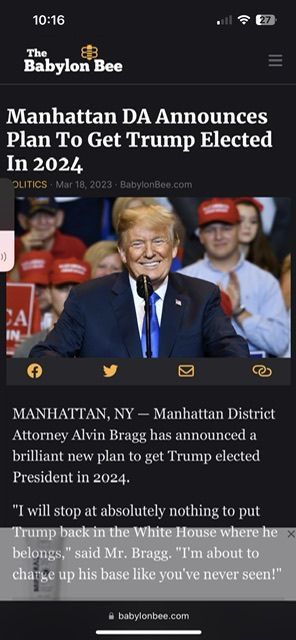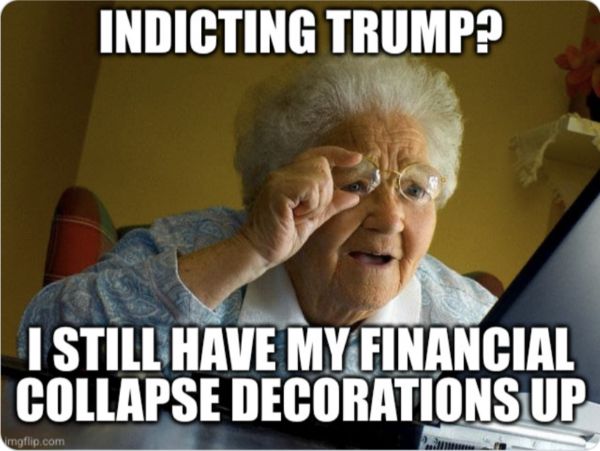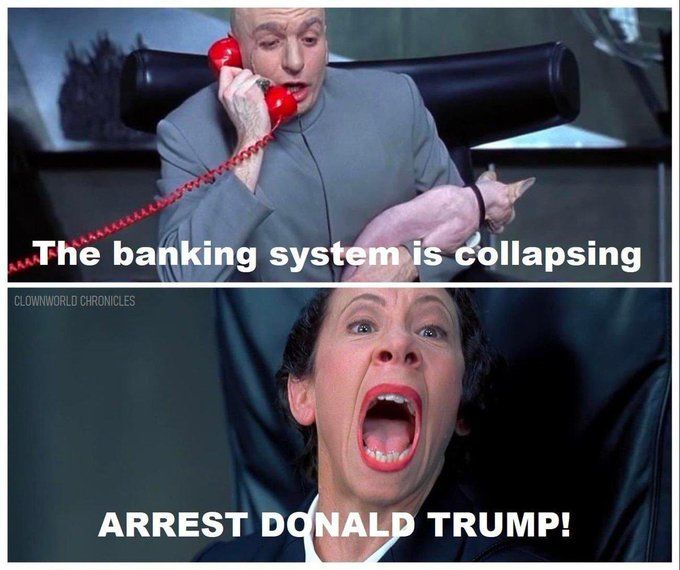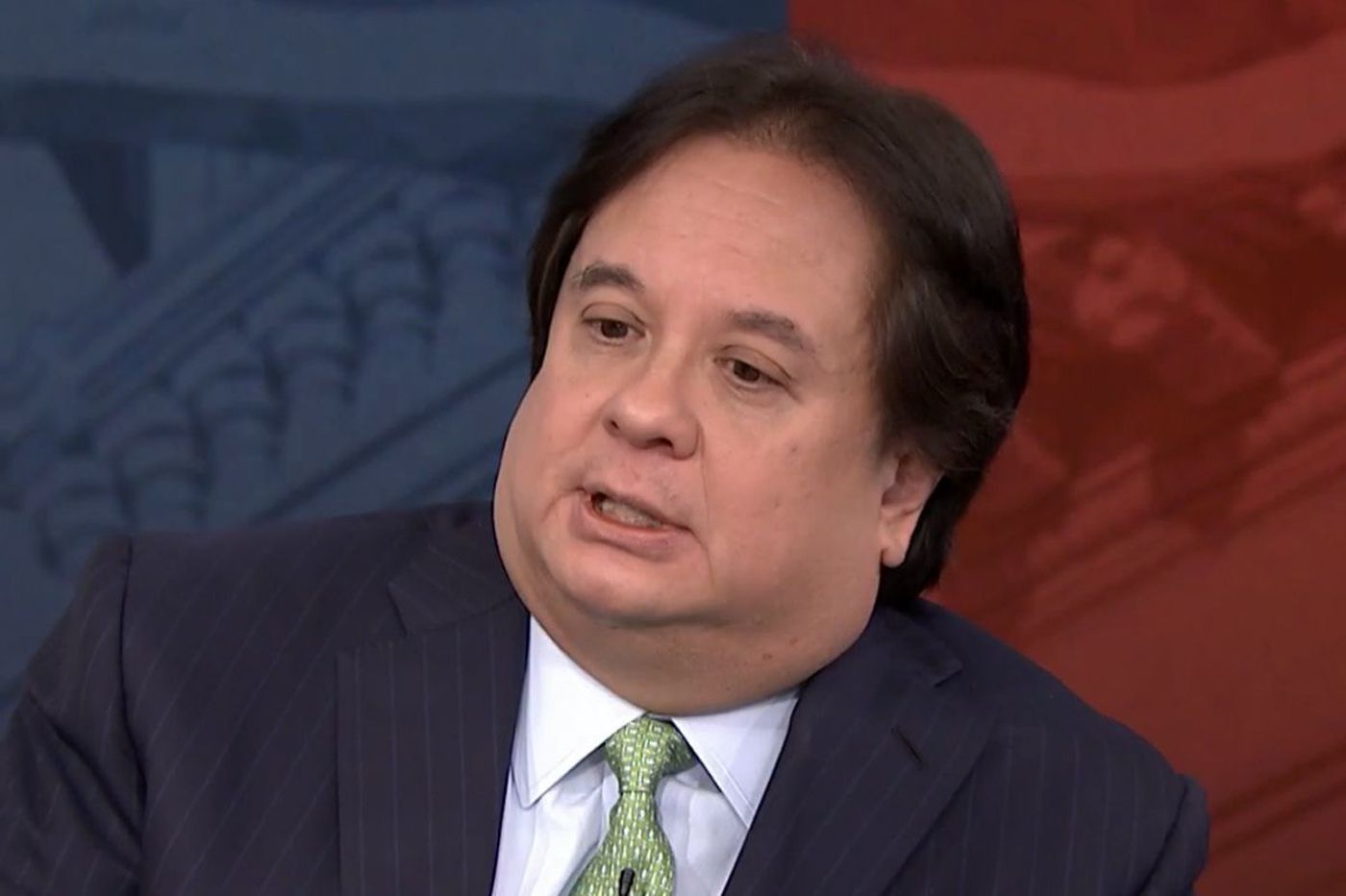Trump says he expects to be arrested on Tuesday
-
@George-K said in Trump says he expects to be arrested on Tuesday:
Not sure how that'll work out, but it will certainly rile up his base.
Question of the hour: How widespread is his base nowadays? We hear glancing references to fans falling away, but what's the reality here?
Tell you what, a good barometric way to answer that would be to watch Trump himself. The more he spins to push himself into the public eye, the more worried he is, maybe.
@Catseye3 said in Trump says he expects to be arrested on Tuesday:
@George-K said in Trump says he expects to be arrested on Tuesday:
Not sure how that'll work out, but it will certainly rile up his base.
Question of the hour: How widespread is his base nowadays? We hear glancing references to fans falling away, but what's the reality here?
Tell you what, a good barometric way to answer that would be to watch Trump himself. The more he spins to push himself into the public eye, the more worried he is, maybe.
If a primary were held tomorrow in Florida, he'd beat DeSantis.
-
@Catseye3 said in Trump says he expects to be arrested on Tuesday:
Adding my bit: A good thing would be for Tuesday to come and go with nothing happening. No arrest, and protesters standing around holding their peckers and their posters of outrage dragging in the dirt.
Agreed. But, as Scott Adams said, "If Trump ends up in handcuffs, he will be your next president."
Not sure how that'll work out, but it will certainly rile up his base.
-
@George-K said in Trump says he expects to be arrested on Tuesday:
"If Trump ends up in handcuffs, he will be your next president."
If Trump ends up in handcuffs, Biden will end up in handcuffs.
-
-
I think they continue making the same mistake as during his term - trying to turn him into the boogeyman. All that does is make him look some perversion of noble and keep him in the public eye.
He should be ignored. It would precipitate increasingly outrageous behavior on his part and accomplish their aims far more effectively.
-
Turley: "Legally Pathetic"
Although it may be politically popular, the case is legally pathetic. Bragg is struggling to twist state laws to effectively prosecute a federal case long ago rejected by the Justice Department against Trump over his payment of “hush money” to former stripper Stormy Daniels. In 2018 (yes, that is how long this theory has been around), I wrote how difficult such a federal case would be under existing election laws. Now, six years later, the same theory may be shoehorned into a state claim.
It is extremely difficult to show that paying money to cover up an embarrassing affair was done for election purposes as opposed to an array of obvious other reasons, from protecting a celebrity’s reputation to preserving a marriage. That was demonstrated by the failed federal prosecution of former presidential candidate John Edwards on a much stronger charge of using campaign funds to cover up an affair.
In this case, Trump reportedly paid Daniels $130,000 in the fall of 2016 to cut off or at least reduce any public scandal. The Southern District of New York’s U.S. Attorney’s office had no love lost for Trump, pursuing him and his associates in myriad investigations, but it ultimately rejected a prosecution based on the election law violations. It was not alone: The Federal Election Commission (FEC) chair also expressed doubts about the theory.
Prosecutors working under Bragg’s predecessor, Cyrus Vance Jr., also reportedly rejected the viability of using a New York law to effectively charge a federal offense.
More importantly, Bragg himself previously expressed doubts about the case, effectively shutting it down soon after he took office. The two lead prosecutors, Carey R. Dunne and Mark F. Pomerantz, resigned in protest. Pomerantz launched a very public campaign against Bragg’s decision, including commenting on a still-pending investigation. He made it clear that Trump was guilty in his mind, even though his former office was still undecided and the grand jury investigation was ongoing.
Pomerantz then did something that shocked many of us as highly unprofessional and improper: Over Bragg’s objection that he was undermining any possible prosecution, Pomerantz published a book detailing the case against an individual who was not charged, let alone convicted.While we still do not know the specific state charges in the anticipated indictment, the most-discussed would fall under Section 175 for falsifying business records, based on the claim that Trump used legal expenses to conceal the alleged hush-payments that were supposedly used to violate federal election laws. While some legal experts have insisted such concealment is clearly a criminal matter that must be charged, they were conspicuously silent when Hillary Clinton faced a not-dissimilar campaign-finance allegation.
Last year, the Federal Election Commission fined the Clinton campaign for funding the Steele dossier as a legal expense. The campaign had previously denied funding the dossier, which was used to push false Russia collusion claims against Trump in 2016, and it buried the funding in the campaign’s legal budget. Yet, there was no hue and cry for this type of prosecution in Washington or New York. -




